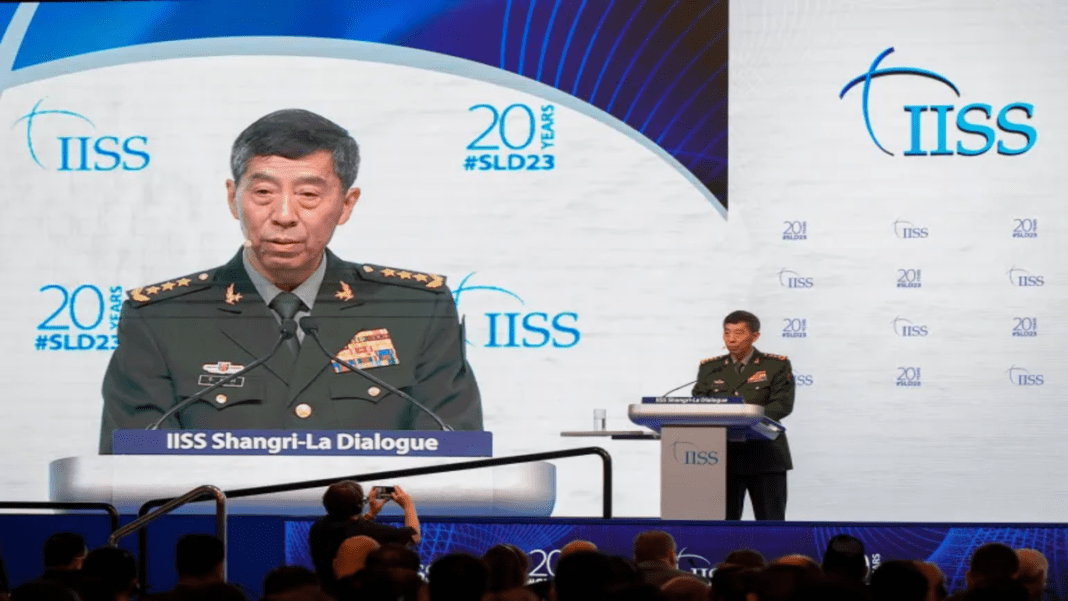SINGAPORE: China’s Minister of Defence Li Shangfu argued that Beijing prefers discussion over conflict, and at the Shangri-La Dialogue in Singapore, he accused some countries of escalating an arms race and meddling in the internal affairs of other countries.
Li’s purchase of combat aircraft and equipment from Rosoboronexport has been the subject of US sanctions since 2018, and he had only given a few speeches abroad before his appearance in Singapore. He argued that bullying and hegemony should give way to mutual respect.
China will not tolerate attempts to secede Taiwan from China, as Taiwan is a self-governing island that values its independence. Xi Jinping has stated that he wants to use force to bring Taiwan back to the Chinese mainland.
Lloyd Austin criticised China for its refusal to engage in military consultations, leaving the superpowers at loggerheads over Taiwan’s democratically elected government and maritime territorial issues in the South China Sea.
Li stated that there are differences between China and the US, but that they should look for areas of agreement and shared objectives to strengthen their bilateral relations and expand their cooperation. A major war or confrontation between China and the US would be a catastrophe the entire world could not sustain.
The US State Department sent a top delegation to Beijing to improve relations with China. Daniel Kritenbrink, assistant secretary of state for East Asia and the Pacific, and Sarah Beran, senior director for China and Taiwan on the White House National Security Council, were accompanying the delegation.
After a rare cooperative sailing across the Taiwan Strait, China’s military censured the US and Canada for “deliberately provoking risk” and accused them of acting recklessly.
The Chung-Hoon had to slow down twice to avoid colliding with a Chinese navy ship, the second close call between the American and Chinese forces in less than 10 days.
Li questioned the US and Allied ships’ presence on Sunday, asking why they were even there. The Chinese authorities had no issues with “innocent passage” but stressed that they must prevent attempts to exercise hegemony in navigation.
Li argued that nations should focus on taking care of their own territorial airspace and waters rather than conducting closing manoeuvres near the territory of other nations.
He argued that attempts to push for NATO-like alliances in the Asia-Pacific are a way of kidnapping regional countries and increasing problems and confrontations, leading to disputes and conflicts.
The Asia-Pacific region needs open and inclusive cooperation, not cliques, to prevent a replay of the two world wars. The US is part of the Aukus alliance, and Washington is a member of the Quad. Li shook hands with Austin at a dinner on Friday, but the two have not had a further conversation.
Before military-to-military negotiations could continue, two Chinese military officers said in private conversations outside the conference that Beijing needed unambiguous indications from Washington of a less combative attitude in Asia, including the lifting of sanctions against Li.
Also Read: Papua New Guinea and US Sign Defence Pact in Light of China’s Augmenting Influence in Pacific



